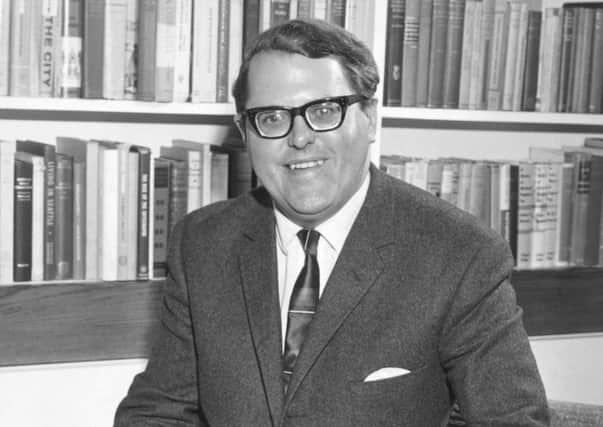Obituary: Lord Asa Briggs of Lewes. historian and educationalist


Asa Briggs had a profound effect on many aspects of the social life of Britain – he was a pioneering educationalist, the authority on Victorian Britain, an academic of renown and the author of a five-volume tome on the history of the BBC. During the Second World War Briggs was involved in the critical work of cracking the German codes at Bletchley Park. He never spoke to anyone of his work there, not even his wife, for 20 years and even then modestly talked of “being the youngest warrant officer in the British army – it entitled me to wear a peaked cap and draw a captain’s pay”. His work, alongside that of Alan Turing in Hut 6 – the section that deciphered Enigma machine messages from the German Army and Luftwaffe – was to prove decisive for an Allied victory.
Asa Briggs and his wife had strong connections with Scotland after they bought a flat in historic Tyninghame House, East Lothian in 1991. They spent much of the year there and were regular visitors to the capital’s galleries and theatres and became enthusiastic supporters of the Edinburgh and Lammermuir Festivals. Lady Briggs recalled: “As a family we fell in love with the sheer beauty of the countryside: it started a whole new chapter of our life. We just adored it.”
Advertisement
Hide AdAdvertisement
Hide AdAsa Briggs attended Keighley Boys’ Grammar school and read history at Sidney Sussex College, Cambridge. He was co-opted into the Intelligence Corps in 1941and despatched to Bletchley Park knowing little of what he was to do. Briggs immediately fell in with the demanding work schedule and enjoyed the spirit of informality (no uniforms) and the equality of the place: “Except towards Alan Turing, whom we all deferred to because he was clearly a genius.”
His agile mind proved ideal for the deciphering work – long hours and no mistakes tolerated. Briggs told an official Bletchley chronicler, “What those years did for me, and I was very grateful for, was that we were all thrown in at the deep end”.
After the war, Briggs held various academic posts and in 1955 he was appointed a lecturer in history at Leeds University and married Susan Banwell. In 1961, he was appointed professor of history at the new University of Sussex with various additional administrative roles. He was instrumental in establishing the university as a major force and served as its vice-chancellor between 1967 and 1976. It was a time of much student unrest and Briggs was never afraid of debating hot social issues in public with the aggrieved students.
He was dedicated to the furtherance of education for all ages and it was no surprise when the Prime Minister, Harold Wilson, in 1969 secured Briggs’ support for the Open University. In 1978 he became the OU’s chancellor, a post he held with distinction until 1991.
Despite this busy academic life, Briggs was a prolific author. His wide knowledge of events made him see a subject in global terms. His epic trilogy on Victorian society compared the boom in British industry in such cities as Glasgow with that in America; there, he argued, industry was larger and more materialistic. He published widely and was an editorial adviser on the magazine History Today and wrote a detailed biography of Karl Marx and the histories of Marks & Spencer and the BBC. The latter took more than 30 years to complete
Another major literary project was being asked by Winston Churchill to proofread the former Prime Minister’s History of the English Speaking Peoples
He returned to Worcester College as provost in 1976, where he remained until his retirement in 1991
Tyninghame House proved a refuge in his retirement. The magnificent mansion, which had been owned by Earls of Haddington since the 17th century, was sold by the family in 1986 and converted into spacious flats. The Briggs enjoyed walking the moors and along the sea coasts
Advertisement
Hide AdAdvertisement
Hide AdOne Sunday when attending Traprain kirk they sat in the gallery. Tradition has it that the gallery is not used for communion and the session clerk asked the Rev Howard Haslett if he should bring down the Lord. Haslett replied, “The Lord is here, in our own midst.” Lord Briggs roared with laughter.
Briggs, a man of much vision and academic foresight, was made a life peer in 1976. He was a man of immense scholarship and learning yet remained modest about his achievements.
Friends in East Linton remember that he was, “charming and full of energy, invariably courteous and always excellent company”.
Briggs is survived by his wife Susan and their two sons and two daughters.